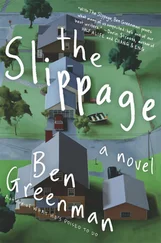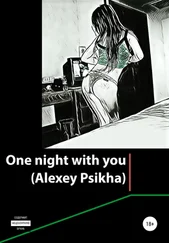But what of me? I left the service and met your mother. We fell in love immediately. The first night, I was hungrier for her than I had ever been for anything in my life. I hope you do not blush to read this, my dear daughter. I wish that one day you will find a man with as great an appetite for you. Nine months later, you were born and your mother died. I do not know a more elegant way to describe this turn of events. My sorrow raised you. I hope that it did not poison you.
I have come somewhat far from the history book. I am sorry, my dear, just as I am sorry that I only send you a letter once each year, on your birthday. Any more would put me in the ground, and I do not believe that you want me there. It is time for my letter to end now. As usual, I will close without a comma, with hope.
Love
your father
SEVENTEEN DIFFERENT WAYS TO GET A LOAD OF THAT

1.
From the air, the house looked like a joke told by someone with no sense of timing, a big brown rectangle in the middle of a slightly bigger green rectangle tatted with a white picket fence. The fence looked flimsy because the fence was flimsy. A child could knock it down, and did, several times, mostly as a result of trying to hurdle it and failing, sometimes just for spite. My father put up the fence when we moved in, to keep the dog in the yard. “Will you get a load of that?” said my mother, puffing on a cigarette. “Your father wants to prove that a lawyer can do more than lawyering. I’m pretty sure he can’t.” And sure enough, within three months, the dog — a small schnauzer beloved by my sister and my father, despised by my mother, and, for me, an object lesson in indifference — was gone through a corner of the fence where the slats flexed enough to permit its passage. “Where is Goosey?” Jill said, in a voice loaded up with tragic tones she had learned from the television. She did this all the time. It was difficult to take her seriously. “Where is my little dog Goosey?”
“I am so sorry,” said my father. The grief in his voice was real.
2.
Since both my parents worked late, our dinners were prepared by a cook, a tall, thin woman named Catherine who was planning to open her own restaurant and who was, my mother told us, attempting to trick my father into becoming an angel. “That’s a kind of investor,” she said, as if there were any confusion. “I think he should think long and hard before he makes that kind of decision.” She was one to talk. When my mother had been in charge of the cooking, dinner was a roll of the dice, both random and risky. We could have pizza four nights in a row, and then not see it again for a month. We could have fried chicken every other night for two months and then lose it for the better part of a year. It made for an unstable relationship with food. With Catherine, we entered into a regimen of strict rotation: chicken, pork, fish, pasta, beef. Each day of the week partnered with a certain entrée. “It’s to help me learn what I need to know,” Catherine said, her eyes glazing over as she drifted into thoughts of her future restaurant, which she was going to call the Hungry Cat. Fridays were for experiments; she tried tagines, pastry shells, exotic meats. One Friday, she served something she called “a Bull in the Grass,” which consisted of a filet mignon served over a bed of spinach and topped with sautéed onions and mushrooms. Midway through the meal, I leaned over to Jill and said, “Why doesn’t she call this ‘a Goose in the Grass’?” My mother laughed. Jill burst into tears. My father said my name once sternly — it was also his own name — and then he said nothing. Had I not been so pleased with my own joke I might have noticed the way he stared at Catherine.
3.
My mother and Catherine didn’t get along, and I wasn’t sure why.
Certainly, my mother wasn’t uncomfortable with the idea of having servants. She had grown up wealthy; her father was a prominent businessman back on Earth. Have I mentioned that we were no longer living on Earth? When gravity and oxygen were first introduced to the moon, the United States government arranged for the transfer of more than 25,000 Americans to Alpha Settlement. No one liked the name, so the government promised that after a year the residents could vote on a new name. That first year, while my parents were busy getting used to their new lives, meeting the neighbors, and fixing up the house — that was the year my father built the fence — Jill and I spent all our time thinking of names for Alpha Settlement.
As befits a self-serious fourteen-year-old, I favored dignified, slightly artificial names: Luna Village, Tranquility Hills. Jill, twelve, wanted a name that made her laugh: “Moonesota,” she said, or “Moontana,” or “Moonte Carlo.” My mother and I indulged her names with weak smiles and encouraging nods. My father loved them. He was constantly asking Jill to think of new ones or, better yet, to make a list of all the ones she had thought of to date. One day he came home from work, and she rushed at him with open arms. “Daddy,” she said. “I thought of three more today: Vermoont! Green Cheese City! Moonesota!” She was beginning to repeat herself, but normally that would have made no difference to my father. Normally, he would have stood next to her and laughed at each and every joke. This was not a normal day, though. He went to the dining room table, set down his briefcase, sat down stiffly, and told my sister and I that he was leaving my mother for Catherine.
4.
This was followed by a long explanation in which he touched on several subjects that were unfamiliar to me and Jill. He spoke about what he called “carnal and conversational compatibility,” and did so in such a manner that it seemed he had not invented it, but rather had read about it somewhere. He warned us that when we picked a mate, we should be vigilant about ensuring that our moral compasses were oriented in the same direction. He even raised the issue of location: he had begun to feel strange since coming to the moon, he said, and worried that it was not natural to live there, no matter what the government said. When he was done with the speech, both Jill and I were thoroughly persuaded, and he sensed this. He nodded at us crisply, picked up his briefcase, and walked out of the kitchen. Jill and I rushed to the front window and watched him go through the gate in the fence. He closed it delicately and then he stood on the other side. He had one more short speech in him. “I put up this fence with my own hands,” he said. “I intended for it to keep you safe, to keep us all safe. It did a poor job because I did a poor job. It let Goosey out and now it is letting me out. I hope it does a better job for you.” He reached out to touch the gate, thought better of it, withdrew his hand. Then he turned and walked away. Jill began to cry. I kept staring out the window. Between the fence and the street, there were several hundred yards of empty frontage, which had two effects: first, to call into question the purpose of the fence; second, to allow me to watch my father recede slowly until he was no more than a tiny figure on the horizon of the evening. Then it was time for dinner, and I knew Catherine wouldn’t be coming, so I ordered some pizza.
5.
My mother was out all afternoon, covering for a friend at the hospital where she worked as a physician’s assistant, so she received confirmation of my father’s departure by telegram that evening. The pizza was a halfer: cheese for Jill, who had declared herself a vegetarian since the Goose in the Grass incident, and sausage for me. My mother took a slice from each half and nibbled at them cautiously. Normally she liked pizza, but even before the telegram arrived, she had suspected that the dinner was a bad sign. The doorbell rang. A man in a white hat and white gloves was standing there, and there was an envelope in his hand. In some ways, Alpha Settlement, still young, was unnecessarily formal. My mother read the telegram several times to herself, put it on her plate, and slid the sausage slice over it as a form of burial. “He used to send me letters all the time,” she said. And then she said no more. Had it been me, I would have closed my mouth if I had no more to say. But my mother did not close her mouth. In fact, she opened it wider, and then wider still. Jill and I, who had been staring down into the pizza, looked up at my mother’s gaping mouth. We didn’t know whether we were supposed to put something in there or take something out. Then my mother left the kitchen abruptly and went into her bedroom, where she stayed for one full month, occasionally emerging to shout at Jill or me, or drive to the liquor store, or watch old detective shows on TV. She loved to criticize the detectives when they missed obvious clues. “She’s wearing different shoes than she was before the murder,” she said. “Will you get a load of that?”
Читать дальше













